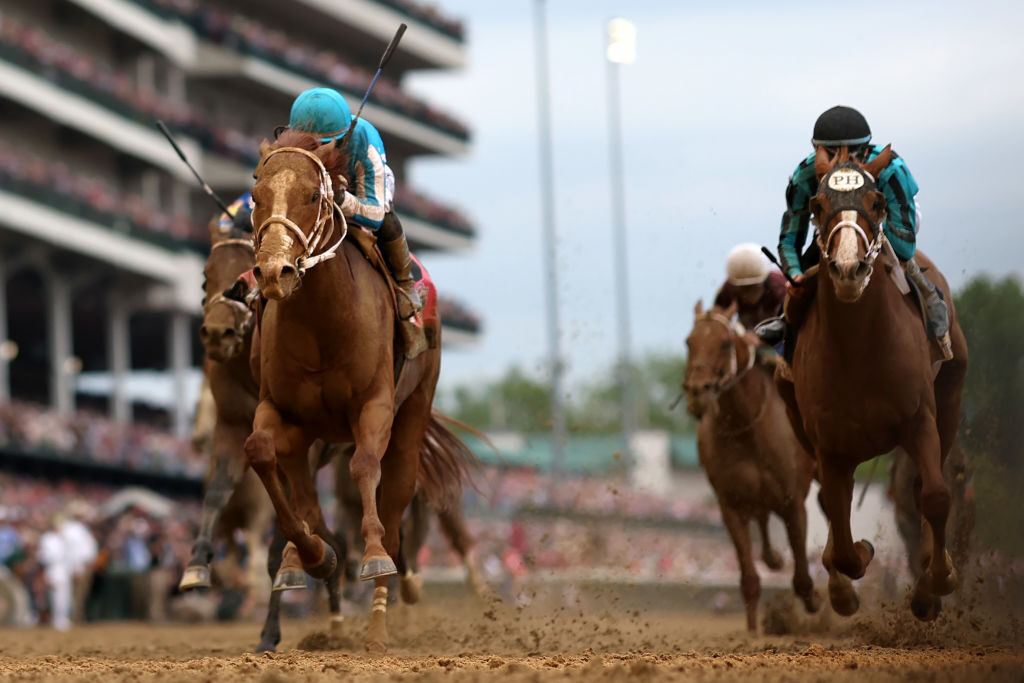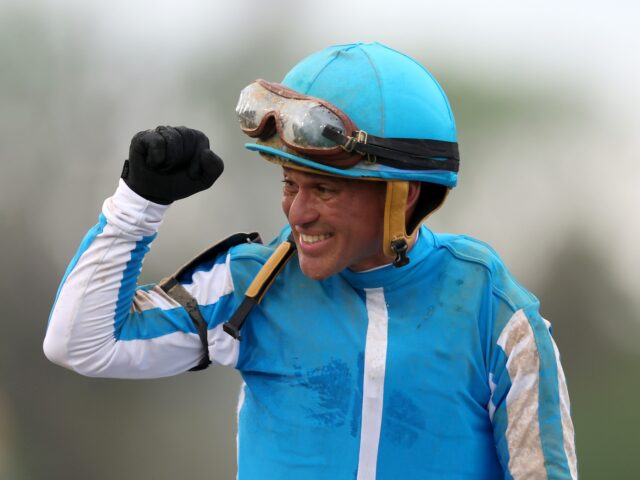CARACAS, Venezuela – Venezuelan jockey Javier Castellano and his horse Mage emerged victorious at the 149th Kentucky Derby on Saturday night at Churchill Downs in Louisville.
Castellano’s Saturday victory marks the first time Venezuelan jockeys attain back-to-back victories in the Derby after Sonny León won the 148th Kentucky Derby in 2022 with the horse Rich Strike.
It also marks the third time a Venezuelan wins the Derby after Gustavo Ávila won the race in 1971 with the horse Cañonero II.
Their victories exemplify Venezuela’s long-standing horse racing tradition, now diminished and facing a myriad of obstacles at home since the arrival of Hugo Chávez’s socialist revolution. The late dictator often expressed his disdain for the practice.
“First of all, thank you, Lord Jesus Christ for giving me the opportunity to win the Derby,” Castellano said after winning the race.
“I never give up, I always try hard and do the right thing,” he continued. “The little Mage, he did really well today. He’s got a lot of heart. It’s a little horse but big heart.”
Castellano, a 45-year-old from Maracaibo, is one of only two jockeys to win four consecutive Eclipse Awards (2013, 2014, 2015, and 2016). Castellano has won 12 Breeders’ Cup races and a record six editions of the Travers Stakes. In 2017, Castellano was included into the Hall of Face of the United States’ National Museum of Racing.
Mage’s trainer, Gustavo Delgado, also from Maracaibo, said that ever since he arrived to the United States his dream was to go to the Kentucky Derby.
“I participated twice with no luck but this time I was sure I was going to win,” Delgado said.
Prior to arriving in the United States, the 65-year-old trainer had earned the Venezuelan equivalent of the Triple Crown twice throughout his career: The José Antonio Páez Classic, the National Breeding Classic, and the Bolivarian Republic of Venezuela Classic.
The history of horse racing in Venezuela goes back to the 19th century. Venezuela built its first racetrack in 1896. Venezuelan contenders in the sport have been delivering “fairy tale” wins at elite horse-racing events since at least 1955, when two Venezuelan horses, El Chama and Predanse, finished first and second at the Washington D.C. International.
In 1971, Venezuelan jockey Gustavo Ávila became the country’s first jockey to win the Kentucky Derby on the back of the Kentucky-born horse Cañonero II (“Gunner II”).
Cañonero II’s historic victory awarded the horse with a much-deserved reputation and popularity in Venezuela. The horse, born with a crooked right foreleg, was described as the 1971 Derby’s “Mystery horse,” with a low 500-1 odds of winning.
“Most American trainers train for speed,” Arias reportedly explained prior to the 1971 Derby. “I train Cañonero to be a star.”
Locally, the practice went on without controversy until the arrival of Hugo Chávez and his Bolivarian Revolution. Since then, the country has seen a progressive deterioration of the practice and all related infrastructure.
Horse racing was also heavily affected by the collapse of Venezuela’s economy under socialism, leading to lack of maintenance, corruption, and other problems that bankrupted the country’s racetracks and forced qualified trainers and jockeys into exile.
Chávez, who openly expressed his disdain for horse racing and often denounced the practice as “bourgeois,” issued a decree in 1999 to dissolve the nation’s national horse racetrack institute and to establish a new overseeing body to heavily regulate horse racing in Venezuela. Promotion of horse racing-related programming in Venezuela’s already heavily censored media was further regulated through a decree issued in 2011.
Despite both decrees, horse racing and betting remained active and legal in Venezuela, albeit severely eroded. Chávez’s successor Nicolás Maduro continued to heavily regulate the sport.

Mage #8, ridden by jockey Javier Castellano crosses the finish line to win the 149th Kentucky Derby at Churchill Downs on May 06, 2023 in Louisville, Kentucky. (Photo by Rob Carr/Getty Images)
The collapse of socialism and the utter destruction of the country’s economy and currency, the Venezuelan bolivar triggered a surge in illegal betting.
Despite the animosity that Chávez maintained towards horse racing, people with ties to his socialist regime have used their positions to attempt an entry into the highest levels of competition in the United States. In 2014, horses with names inspired by Chávez – such as Social Inclusion, Red Constitution, and Peace Militants – were raised under the management of Ronald Sanchez, whose brother, Tomás Sánchez, Chávez appointed to oversee a purge of capital markets in 2010.
The collapse of socialism not only endangered the sport, but the lives of the horses themselves. Between 2016 and 2020, the country witnessed several cases of horses being stolen and butchered for their meat by desperate Venezuelans. Horses were not the only targets, as zoo animals were also stolen and used as meat.
By 2018, a horse’s meat could go for upwards of $1,400 in local markets (for comparison, the nation’s monthly minimum hovered below $10 per month at the time). In 2020, Venezuelan racehorse Ocean Bay was stolen from his racetrack and then butchered for meat. Ocean Bay won two of Venezuela’s three Triple Crown races in 2016 and won five more races in 2017.
In 2021, Maduro began attempts to have the socialist regime restore the crumbling horse racing infrastructure that they had scavenged as source of income for the cash-starved regime. Maduro made an appearance at the 75th Simón Bolívar Classic. The attendance of the head of state at the event was a common practice prior to the arrival of the socialist regime.
The Venezuelan horse racing institute, controlled by the socialist regime, celebrated Javier Castellano’s victory at the Kentucky Derby.
Christian K. Caruzo is a Venezuelan writer and documents life under socialism. You can follow him on Twitter here.

COMMENTS
Please let us know if you're having issues with commenting.